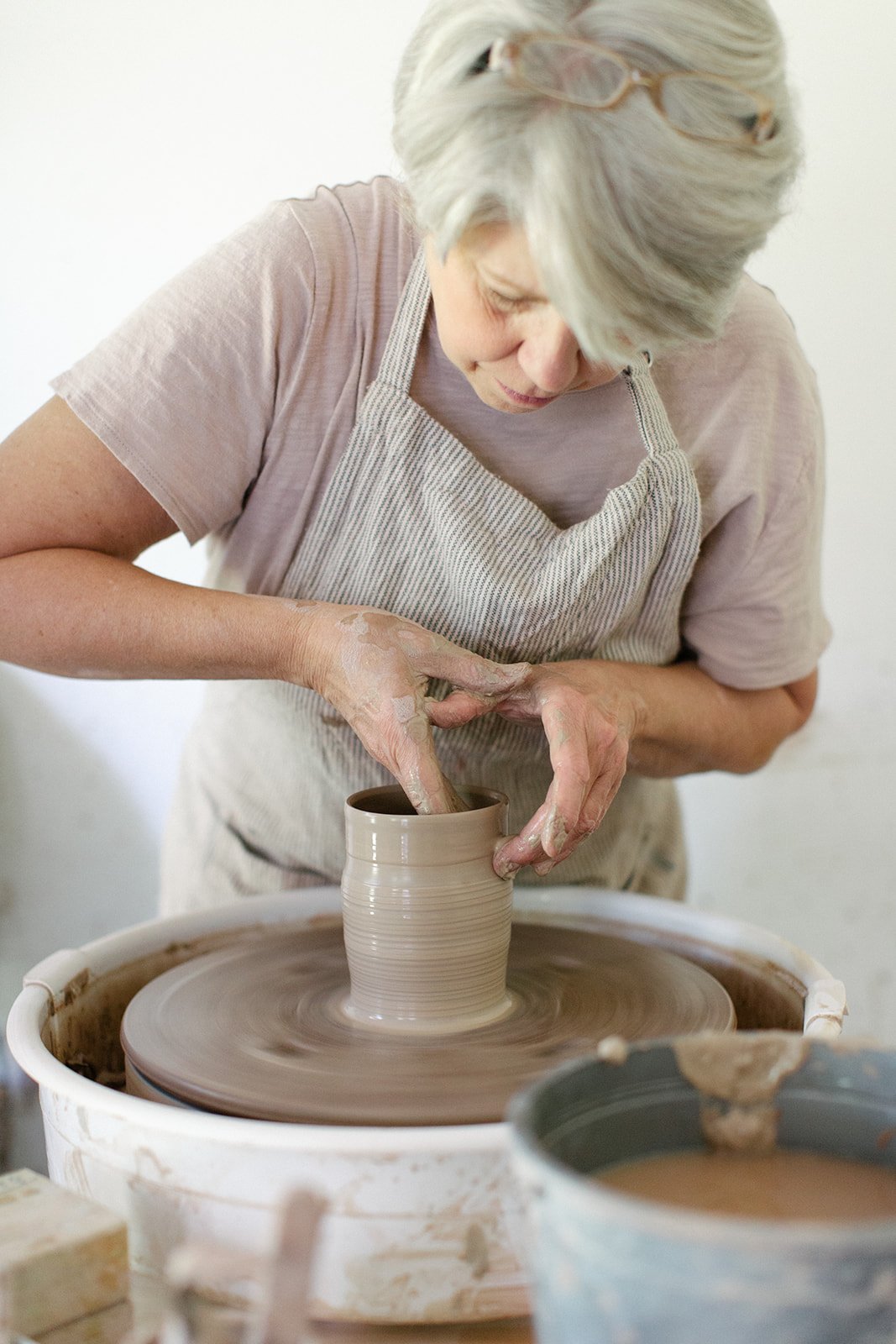Beth Smith of Mudtown Pottery makes some of the most touchable, whimsical pottery. I asked her how she was drawn to pottery as an art form and what she wants to give to the world through it.
I remember distinctly my first pottery class (January 2017 at Birmingham Museum of Art) because it was way out of my comfort zone. I went by myself. It felt uncomfortable but also freed me to explore this craft uninhibited. I began this creative process in a depression. My children were finding their place in the world and my dear Danny had just lost his job of 31 years. I felt afraid of the future and unsure of how (and who) I was supposed to be in these new circumstances. I knew I needed to find a positive outlet and, while I did try a few other mediums, once I got my hands in the clay, I knew I had found it. I immediately signed up for a more intensive course at Cahaba Clay. I connected with my pottery teacher who was my children’s age and needed some “mother love” as she was away from home and trying to figure out life ( I was, too!), I found a heart friend in my class that has been a strong influence in my life to this day, I was able to focus on my creativity and the process of the craft and that really helped lift me out of my darkness. For reasons I can’t explain, I had an early vision of what I wanted to do with this interest and before I knew it, I had transformed our basement to my studio and equipped it with several wheels, thanks to my dad and Danny coming alongside and funding so much of the upfront costs. I am self-taught. Most of what I know I’ve learned by doing it wrong and making a great mess, but I have never been so discouraged that I wanted to quit.
Pottery is an ancient craft. Because of that, most potters feel like they are picking up where others have already gone. There is very little that is “new under the sun.” There has been a lot of openness on technique and process from older, more experienced, ceramicists. I have the impression that the craft is what matters, not any one individual.
I have always been drawn to pottery because it feels like each piece has a story to tell. Recognizing that other hands have held, formed, painted, fired, sanded, and loved a vessel that I now cradle in my own hands feels like human connection to me, especially during this time in history where we are losing human connection in so many ways. As I make a pot, I imagine whose hands will hold this? Will they put flowers from their yard in this vase? How will they cook with this piece? I want to put that feeling in the world—that someone loved and cared about that coffee cup you use in your daily ritual, that there is a human behind that pot or vase, someone who considered how the glaze might react or how the handle might feel.
Pottery has taught me a lot about patience, resilience, and grit. But mostly, pottery has taught me to notice how we connect with each other; how our lives overlap and weave together, even in the smallest ways.

